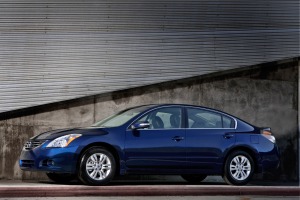
Their solicitations often come by way of auto-dialed, pre-recorded phone calls, late-night TV commercials or direct mail letters. These ads are usually filled with a sense of urgency trying to scare uninformed buyers into instant action. "Final notice! Your vehicle's warranty is about to expire! Don't go another day without coverage!"
Third-party extended-warranty companies promise to offer you peace of mind in the event that your vehicle breaks down. But all too often, their shady practices scam people out of their money instead of giving them real coverage when they need it. Not every extended warranty company is out to rip you off, but over the course of our research, we found that the honest ones are few and far between.
Old Habits Die Hard
Chris Thetford, director of communications for the St. Louis Better Business Bureau, said that his office has seen a repeating pattern of complaints against third-party warranty companies. Even when a company resolves individual complaints, it may not be a sign of repentance.
"The fact that a company responds to a complaint does not mean that they have changed their business model," Thetford said.
Thetford added that consumer complaints fall into two general categories: The first is the consumer who purchased a third-party warranty, wants to cancel it, but has difficulty getting a refund. The second is the consumer who buys a third-party warranty, files it away until they need repairs, but then realizes that the repairs are not covered because there are too many exclusions in the service contract.
What Is a Third-Party Warranty?
A third-party warranty is so named because it has no direct business relationship with the product it covers, in this case your car. These warranties differ vastly from "manufacturer extended warranties," which use original parts and factory-trained technicians to repair your vehicle at a dealership.
Third-party warranty companies may give you the option to take your car in to the dealership, but the reimbursement process is often a hassle if a company doesn't want to cover a part. Manufacturer warranties cost more than third-party warranties, but we feel they also provide a much greater level of convenience and protection.
A number of these third-party warranty companies are fly-by-night operations that go belly up within a few years, costing consumers hundreds of dollars and leaving them without coverage. When a Carspace forum member posted about how her warranty company went out of business, she found out that she wasn't alone.
"Welcome to the club," said Mikefm58. "Many of us here have been burned by similar third-party warranty companies just like Continental. In my case, Warranty Gold did it to me. Your warranty company will or has gone bankrupt and you are fortunate to get anything back. I got nothing. Most likely, the crooks that started the company will eventually be back in business under another name. That's why no regular [member of the forum] here will recommend any warranty other than a manufacturer-backed one."
We Are Not Immune
One of our Edmunds editors received a typical third-party pitch letter from SPD Warranty Program, based in St. Louis. The letter said that our editor had purchased her vehicle "42 months ago," which wasn't true, and implied her vehicle warranty was about to expire. They called their service a "manufacturer warranty replacement program," which is certainly a misrepresentation of its services. The letter tried to scare her by listing exorbitant prices for typical engine and transmission repairs, and said that she would be responsible for these costs if she was not protected. The letter stressed that she "Couldn't afford to be without coverage!"
We looked into SPD on the Better Business Bureau (BBB) Web site, and found that it was given an "F" rating. The company was listed under five other aliases and had 229 complaints filed against it. In March 2008, the Missouri attorney general filed a suit against SPD for using misleading notification letters.
Wolf in Sheep's Clothing
Similarly, U.S. Fidelis is another third-party warranty company with a poor record. U.S. Fidelis may be familiar to readers from its TV advertisements, which feature a halo above the logo to imply that it is a faith-based organization. But the business is not as sacred as its logo would have you believe.
According to the BBB, U.S. Fidelis (a.k.a. Dealer Services, National Auto Warranty Services Inc, Dealer Warranty Division and National Auto Warranty Service) has received more than 1,100 complaints in the past 36 months. Attorney generals in 40 states have launched a coordinated investigation of the company for charges ranging from contacting people on the "do not call" list to misleading consumers into believing that it is affiliated with a dealer or automaker.
According to various news reports, Darain Atkinson, the company's president, was convicted of burglary, theft and forgery in 1986, before he founded the company.
A Few Helpful Tips
Third-party extended-warranty scams were widespread enough that the Federal Trade Commission (FTC) issued a consumer alert on its Web site. We gathered a few of their tips along with some of our own.
Research the company before you sign up with them: A quick Google search is easy to do, and will reveal quite a bit about the company. You can also ask about them on message boards, or look them up on your state's BBB Web site.
Know what's covered and what isn't: This is often the biggest source of confusion when it comes to extended warranties. Although they are called extended warranties, they don't function in the same way that your original bumper-to-bumper warranty does. Think of these as service contracts that minimize your costs in the event of high-priced repairs.
Since their coverage is limited, it is all the more important for you to know what is covered by your extended warranty. You'll want to get an exclusionary policy. These types of warranties more clearly state everything that is not covered, with the understanding that everything else is. This way, you don't run into any surprises down the line.
If you get mail or phone calls about renewing your vehicle warranty, don't take the information at face value. Your vehicle's warranty may be far from expiring — or it may have expired already. Take the time to find out exactly when your manufacturer's warranty expires. This way you won't fall for the old "Your warranty is about to expire!" trick.
If you're not sure about the length of your warranty, refer to our warranty page. We have a thorough listing of all factory warranty coverage. A dealership can also look up the exact day your warranty expires (assuming you are under the mileage limit) by determining the "in service" date for your car.
Never give out personal financial information like your bank account, credit card or social security numbers, or even your driver license number or vehicle identification number (VIN). Unless you contacted the company to buy a warranty, keep this information to yourself. A few unscrupulous companies have been known to use your VIN to convince you they can "blacklist" your vehicle so that no one else will cover it — unless you sign up with them. Don't fall for this. No such list exists.
Be skeptical of any unsolicited sales from a recorded message or if your phone number is on the "Do Not Call" list. You may be getting less of these "robo-dialed" phone calls thanks to a new rule from the FTC. But in the event that a company ignores the rule, don't pay any attention to its recording. If you want to get more information about an extended warranty, we suggest that you call your local dealer, ask for the finance manager and inquire about the manufacturer's extended warranty.
Be alert to fast talkers.
Telemarketers pitching auto warranties often use high-pressure tactics to gain the upper hand and get you to buy that day. A reputable company will let you see a copy of the contract, and let you decide on your own time. Ask them to fax or e-mail you the contract and take your time going over it. Don't fall for the "limited time specials" that many companies claim to have. These pitches are made up to create a false sense of urgency.
If You've Been Burned
If you lose money to a third-party warranty, there are several agencies you can turn to. This will vary based on your situation. Since you signed a contract, your first step is to try and get it resolved with the company. If that doesn't work, file a complaint with the BBB or the FTC.
"Eighty-five percent of the grade we give a business is based on consumer experience," said the BBB's Thetford.
They may not be able to get directly involved, but by spreading the word you may expose a pattern of suspect activity and prevent others from getting scammed. At the very least it is important to have recorded evidence of your complaint.
Avoiding Warranty Issues
The best way to avoid extended-warranty scams is to choose coverage with the manufacturer's extended warranty. This way, you deal with the same company you trusted enough to buy a car from in the first place. Almost every car manufacturer offers a factory extended warranty. They will cost a bit more (although these warranties are negotiable), but at least you'll have the peace of mind that your vehicle is in the right hands.









